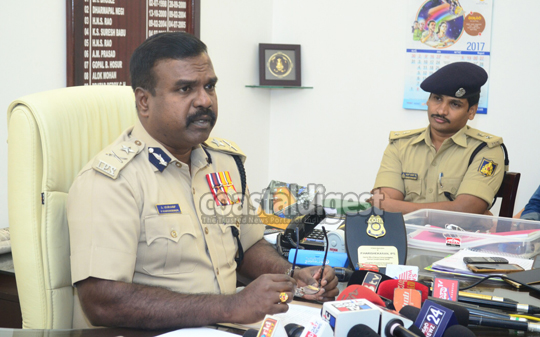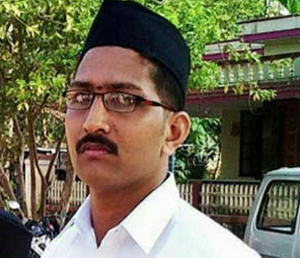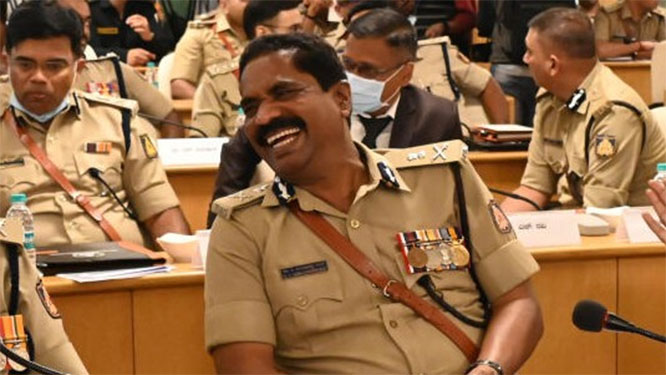Mangaluru, Aug 15: Nearly six weeks after the cold-blooded murder of RSS worker Sharath Madiwala that had triggered communal clashes in coastal district, the police have managed to arrest two accused including a small-time leader of Popular Front of India.

Addressing a press meet here on Tuesday, IGP (western range) Harisheshkaran announced the names of the accused as Abdul Shafi (36), a resident of Sajipamunnur, and Khaleelulla (30) from Chamarajanagar.
Abdul Shafi was picked up in Bantwal while Khaleelulla, who is the Chamarajanagar district unit president of the PFI, was picked up from his home district. The police have secured the custody of the accused after producing before a local court.
Rubbishing the rumours of arrest of third accused, IGP said that only two persons were arrested so far and all the other absconding accused will be caught soon.

He said that the police had interrogated around 30 people in marathon investigation. The probe teams had also visited Maharashtra, Kerala, Tamil Nadu, Bengaluru, Shivamogga, Karwar, Hassan, Mandya and other places.
Harishekaran said the duo was picked up from their home towns and booked for conspiracy and harbouring the other accused. "They had provided logistics help to the assailants," he said adding that they have been produced before the court and sent to judicial custody.
More than 30 police personnel, which included senior police officials, were involved in the probe. "This was a complicated crime and that's why it took several days to make the arrests," added Harishekaran.
The development comes two days after DG-IGP R.K. Dutta told reporters in Bengaluru that police had achieved breakthrough in the case.
Dakshina Kannada Superintendent of Police Sudheer Kumar Reddy C.H. earlier said the type of investigation adopted in the murder of Sharath Madiwala was one used in 1990s when mobile phones were not in use. The perpetrators of the murder have not been using mobile phones.
Mr. Reddy also that the recent transfer of policemen following the disturbance in Bantwal had not impacted the investigation.
Madiwala was attacked by a gang on July 4 on B.C. Road. He breathed his last at a hospital in Mangaluru on July 7. The murder had triggered communal tension in the region.
More details are awaited







Comments
Hmm... Cops caught PFI members involved in murder of a legalized terrorist organization member. Good Job. But never trust authorities. A more detailed investigation required.
fixed no doubt....As our CM said majority police officers are RSS chaddies. It is easy to fix the case with innocent people. Shame on you police officers. Please nab right people who are sand mafia group.
fixed no doubt....As our CM said majority police officers are RSS chaddies. It is easy to fix the case with innocent people. Shame on you police officers. Please nab right people who are sand mafia group.
Kill Also Ashraf murder accused
Cops did great job. Should do as (fake)encounter.
Anti nationals... should be hanged soon
Kill them.. dont waste time for questioning and verdict
Where is our Ramanath Rai bashers... Sleeping or pretending to sleep
Good job cops
All are Muslims
Add new comment